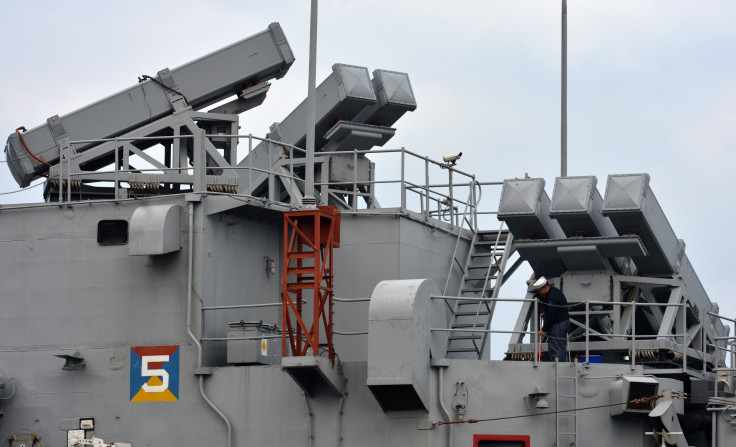US-Taiwan Arms Deal: China Threatens Sanctions Against Companies Involved

China threatened to issue sanctions against companies participating in the U.S. government’s sale of navy frigates and other military equipment worth $1.83 billion to Taiwan. The warning comes after Washington approved the sale Wednesday, despite China’s protests.
"China resolutely opposes the sale of weapons to Taiwan by the U.S.," Vice Foreign Minister Zheng Zeguang said late Wednesday, during a meeting with Kaye Lee, a top Washington diplomat in Beijing, according to the Associated Press (AP), adding: "In order to safeguard the nation's interests, the Chinese side has decided to take necessary measures, including the imposition of sanctions against companies participating in the arms sale to Taiwan."
China, which considers Taiwan to be a part of its territory, issued a formal protest against the sale late Wednesday and said that the deal affects Beijing's sovereignty and security interests. U.S.- and E.U.-based companies are currently not allowed to sell military equipment to China, AP reported. Chinese authorities have issued such threats of sanctions before but it was not clear if the threats had any meaningful impact.
The latest deal includes the cost of renovating two former U.S. Navy Oliver Hazard Perry-class frigates, anti-air and armor missiles, defensive ship systems and 36 AAV-7 Amphibious Assault Vehicles, reports said, citing the Defense Security Cooperation Agency, an American group that looks into the foreign defense sales.
Before the deal was signed, Ma Xiaoguang, spokesman for the Chinese Cabinet's Taiwan Affairs Office, reportedly said Wednesday: "We resolutely oppose sales of weaponry or military technology to Taiwan by any country in any form or using any excuse," adding: "Meanwhile, we also hope that the Taiwanese side will treasure the excellent hard-won results of the peaceful development of relations between the sides and do more to benefit the improvement and development of ties between the two sides."
A spokesman for the Chinese Embassy also said earlier Wednesday: "We urge the U.S. government to stop selling arms to Taiwan to avoid hurting China-U.S. relations and disturbing peaceful development of cross-strait relations."
In 2011, the U.S. signed two deals with Taiwan -- an agreement worth $5.9 billion to upgrade Taiwan’s fleet of 145 Lockheed Martin-built F-16 Fighting Falcons and a $6 billion deal for a mix of defense equipment, including munitions for the Patriot anti-missile defense system. While China registered its protest against those two sales as well, the U.S. said, according to AP, that there was no need to let the latest deal affect ties between Washington and Beijing. The relationship between China and the U.S. has already been bogged down by Beijing’s alleged construction of an island in the South China Sea and by cybertheft claims against the country by the Washington.
While the Congress has 30 days to review the sale, there will likely be no change as U.S. lawmakers welcomed the deal, with some even calling for more frequent sales to Taiwan.
© Copyright IBTimes 2025. All rights reserved.






















